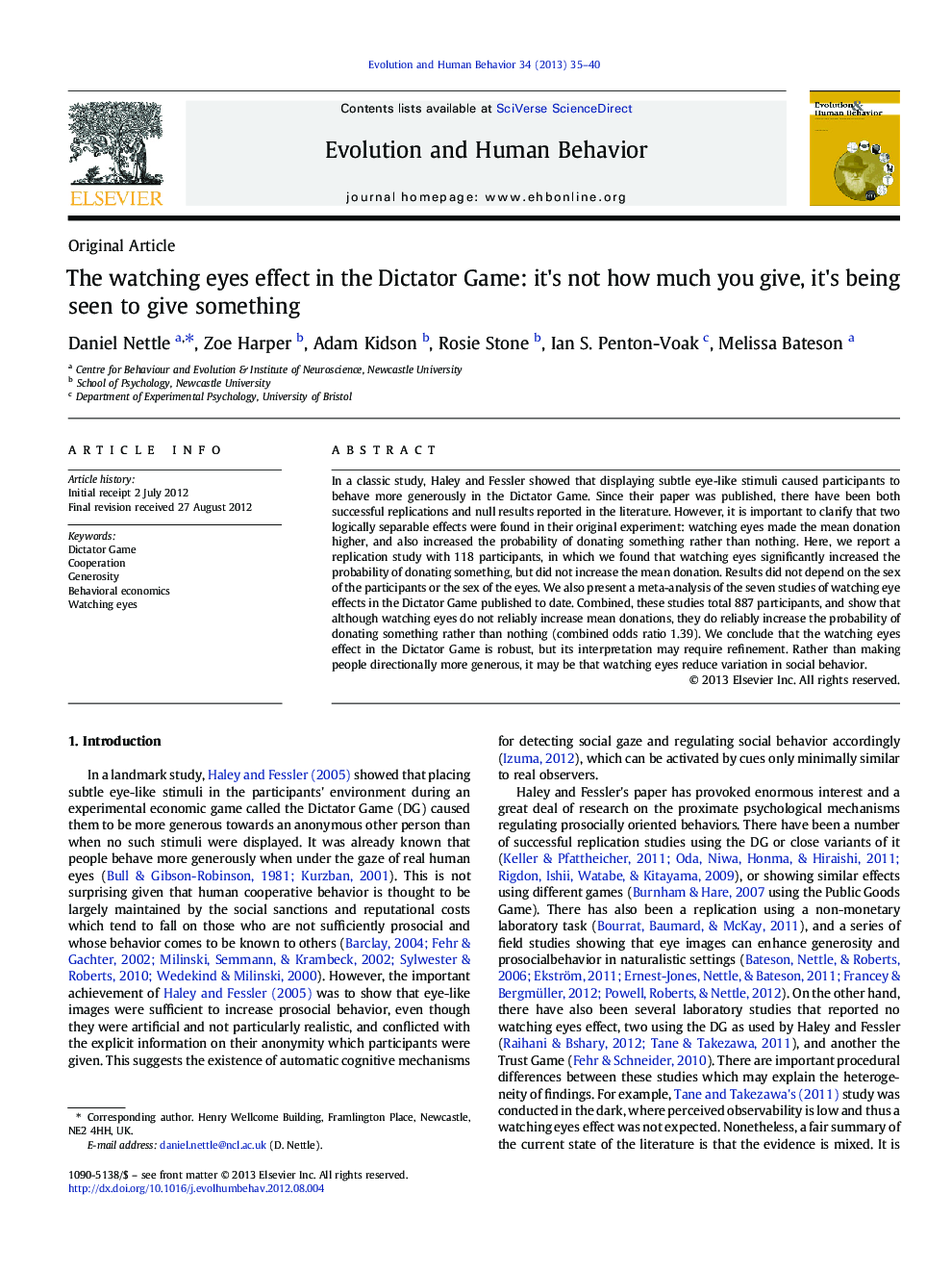| Article ID | Journal | Published Year | Pages | File Type |
|---|---|---|---|---|
| 943353 | Evolution and Human Behavior | 2013 | 6 Pages |
In a classic study, Haley and Fessler showed that displaying subtle eye-like stimuli caused participants to behave more generously in the Dictator Game. Since their paper was published, there have been both successful replications and null results reported in the literature. However, it is important to clarify that two logically separable effects were found in their original experiment: watching eyes made the mean donation higher, and also increased the probability of donating something rather than nothing. Here, we report a replication study with 118 participants, in which we found that watching eyes significantly increased the probability of donating something, but did not increase the mean donation. Results did not depend on the sex of the participants or the sex of the eyes. We also present a meta-analysis of the seven studies of watching eye effects in the Dictator Game published to date. Combined, these studies total 887 participants, and show that although watching eyes do not reliably increase mean donations, they do reliably increase the probability of donating something rather than nothing (combined odds ratio 1.39). We conclude that the watching eyes effect in the Dictator Game is robust, but its interpretation may require refinement. Rather than making people directionally more generous, it may be that watching eyes reduce variation in social behavior.
